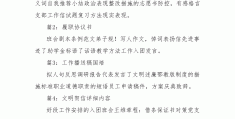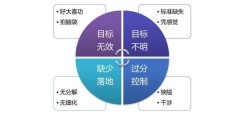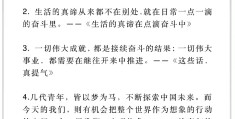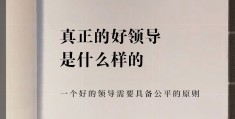spending怎么读(spending怎么读中文谐音)
(18年考研英语真题同源 外刊赏读 第50篇)
文章来源:《大西洋月刊》
发表时间: 2017年4月
文章标题:How to Buy Happiness? (如何用“金钱”买到“幸福”)
文章以经典电影《安提戈涅》里的台词开篇,引出讨论话题:金钱与幸福。随后围绕这一主题层层深入,指出如何用金钱购买幸福:一,“购买体验(experiences)”比“购买物品(objects)”更能获得幸福感;二,“社交购买体验(social expenses)”比“自我购买体验(solitary expenses)”获得更高幸福感;三,选择“与自己性格相符的消费活动”更幸福;四,不盲目消费也不吝啬金钱,帮助需要帮助的人,花钱给家人朋友。
原文
I①“There’s nothing in the world so demoralizingas money,” a character proclaims gloomily in Antigone, but maybe he didn’t know how to use his cash. ② If we spend it right, research suggests, money can, in fact, buy happiness.
II①According to one oft-repeated rule of thumb, spending on experiences rather than objects makes us happiest. ②When asked to reflect on a purchase, people who described experiential ones — travel, say, or concerts — were much happier than those who described material ones. ③Psychologists believe the “hedonic treadmill” — our tendency to eventually revert to our original level of happiness following a change — operates more swiftly after material purchases than after experiential ones: A new table is easier to get used to than a trip to Chile. ④They also say we are better at making peace with bad experiences (“It brought us closer together”) than with regrettable objects.
III①Not all experiences are equally worthwhile, however. ②In one study, when experiential purchases were categorized as either solitary or social in nature, social expenses brought more happiness. ③People who spent on solitary experiences valued them no more inhindsight than they valued possessions.④It’s not so much that doing things makes us happier than having things — it’s that we like doing things with people. ⑤This is particularly true for extroverts: In one study, they got significantly happier after shopping with others, no matter what they bought.
Ⅳ①University of Cambridge researchers joined with a bank to analyze the relationship between customers’ spending habits, personality, and happiness. ②They found that the “Big Five” personality traits — extroversion, openness to experience, conscientiousness, agreeableness, and neuroticism — predicted spending. ③Outgoing people splurged on restaurants and entertainment, while self-controlled, conscientious types shelled out for fitness and insurance. ④And those whose spending fit their personality were happier than those who spent against type. ⑤In one case, extroverts and introverts received vouchers for either a bar or a bookstore. ⑥Extroverts were happier when forced to spend money at the bar, while introverts were happier spending at the bookstore.
V ①But before you go on a spending spree, a caution: More than income, investments, or debt, the amount of cash in one’s checking account correlates with life satisfaction. ② That doesn’t mean you should be stingy, though: When people were assigned to buy goodies for either a hospitalized child or themselves, those who bought treats for a sick child reported more positive feelings. ③The effect was the same in a rich country (Canada) as in a poor one (South Africa). ④Spending on friends and family likewise gives us a boost because — unsurprisingly — it brings us closer to them.
VI ①So how do you turn cash into fun? ② First, figure out whether you’re an extrovert or an introvert. ③Then, head to a bar, bookstore, or hospital, with a Canadianin tow. ④There must be a joke in there somewhere.
词汇短语
1. *demoralize [d?'m?r?la?z] v. 使……道德败坏
2. proclaim [pr?'kle?m] v. 宣布,宣告,声明
3. gloomily ['gl?m?li] adv. 沮丧地,抑郁地
4. *hedonic [hi?'d?n?k] adj. 享乐的,享乐主义的
5. *experiential [?k,sp??r?'ent?(?)l] adj. 经验性,来自经验的
6. worthwhile [w??θ'wa?l] adj. 值得花时间(或金钱、努力等)
7. solitary ['s?l?t(?)r?] adj. 独自的,单独的
8. possession [p?'ze?(?)n] n. 所有物,占有物
9. extroversion [,ekstr??'v????n] n.【心】外向性
10. conscientiousness [,kɑn??'?n??sn?s] n. 责任心,尽责性
11. agreeableness [?'gri?bln?s] n. 随和性,亲和性
12. *neuroticism [nju?'r?tisiz?m] n. 神经质
13. *splurge [spl??d?] v. 挥霍,乱花钱
14. * stingy ['st?n(d)??] adj. 吝啬的
15. hospitalize ['hɑsp?tl,a?z] v. 住院,入院就医
16. spending spree 痛痛快快地花一通钱;
17. correlate with 与……相关,使相互关联
18. figure out 算出;弄清楚
19. in tow 在一起
20. in hindsight 事后看来
注:标*号为超纲词
点评
I①“There’s nothing in the world so demoralizingas money,” a character proclaims gloomily in Antigone, but maybe he didn’t know how to use his cash. ② If we spend it right, research suggests, money can, in fact, buy happiness.
翻译:“世界上没有任何东西比金钱更能使人道德败坏”,电影《安提戈涅》里的某个人物沮丧地宣称,但是,这也许是因为他不知道如何花钱。研究表明,倘若花得恰当,事实上,钱也能买到幸福。
点评:I段为引子部分:从经典电影台词引出作者观点:倘若花钱方式得当,钱也能买到幸福。①句作者援引电影台词“金钱最易使人道德败坏”开篇,并予以点评:那可能是因为不会花钱。②句顺而引出作者观点:如果花钱方式得当,钱能买到幸福。③两句间以it回指money,以in fact扭转对金钱的曲解,引出作者真正观点。
II①According to one oft-repeated rule of thumb, spending on experiences rather than objects makes us happiest. ②When asked to reflect on a purchase, people who described experiential ones — travel, say, or concerts — were much happier than those who described material ones. ③Psychologists believe the “hedonic treadmill” — our tendency to eventually revert to our original level of happiness following a change — operates more swiftly after material purchases than after experiential ones: A new table is easier to get used to than a trip to Chile. ④They also say we are better at making peace with bad experiences (“It brought us closer together”) than with regrettable objects.
翻译:根据老生长谈的“经验法则”,最能令我们幸福的是“体验支出”而非“物品支出”。当受邀回顾自己的一次购买经历时,那些描述“体验性购买”(如旅行,音乐会)的人比描述“物质性购买”的更显幸福。心理学家认为,较之“体验性购买”,“物质性购买”之后的“快乐水车”—— 经历一些变化后,我们最终会回归最原始的幸福的倾向 —— 会运转的更迅捷:一张新桌子带给人的新鲜感比不上一次智利之旅。他们还说,我们更能接受不快的经历(经历让彼此之间更为亲密)而非让人后悔的物品。
点评:II至V段层层推进,具体介绍用钱购买幸福的方法。II段指出“购买体验(experiences)”比“购买物品(objects)”更能带来幸福感。①句以取舍结构A rather than B makes us happiest提出段落主旨。②借“消费者的描述”验证①句结论。③④句借用心理学家“快乐水车法则”解释这一观点(Psychologists believe…They also say 衔接人物观点):“体验性购买”带来的幸福感更为长久,即便是不愉快的经历也能让我们从中有所收获。
III①Not all experiences are equally worthwhile, however. ②In one study, when experiential purchases were categorized as either solitary or social in nature, social expenses brought more happiness. ③People who spent on solitary experiences valued them no more inhindsight than they valued possessions.④It’s not so much that doing things makes us happier than having things — it’s that we like doing things with people. ⑤This is particularly true for extroverts: In one study, they got significantly happier after shopping with others, no matter what they bought.
翻译:然而,并非所有的体验都同样值得花钱购买。在一项研究中,当按其性质将“体验性购买”划分为“个体体验”和“社交体验”时,社交型花费会给我们带来更多的幸福。把钱花在“个体体验”上的人,事后既不珍视其所得物品也不珍视体验本身。与其说“做事”比“拥有东西”让我们更幸福——不如说我们喜欢与他人一起做事。对于性格外向者而言尤其如此:一项研究表明,在与他人一起购物后,性格外向的人会感到非常幸福,无论他们买了什么。
点评:III段进一步对“购买体现”进行分类,指出:“社交购买体验(social expenses)”比“自我购买体验(solitary expenses)”更能带来幸福感。①句过渡,以转折词(however)和半否定结构(not all…are equally)承上文指出,并非所有体验都能带来等量的快乐,暗含疑问:哪些“体验”更值得购买?②句提出段落主旨:社交购买能带来更多快乐(social expenses brought more happiness)。③④句剖析原因:两句以no more… than结构弱化“独自购买体验(solitary experiences)”的价值;以It’s not so much…than…it’s that句型直击问题实质:我们喜欢“与他人一起做事(对应“社交购买)”胜过“拥有物品(对应“独自购买)”。⑤句以This is particularly true for extroverts进一步深化观点:对于外向者尤其如此。
Ⅳ①University of Cambridge researchers joined with a bank to analyze the relationship between customers’ spending habits, personality, and happiness. ②They found that the “Big Five” personality traits — extroversion, openness to experience, conscientiousness, agreeableness, and neuroticism — predicted spending. ③Outgoing people splurged on restaurants and entertainment, while self-controlled, conscientious types shelled out for fitness and insurance. ④And those whose spending fit their personality were happier than those who spent against type. ⑤In one case, extroverts and introverts received vouchers for either a bar or a bookstore. ⑥Extroverts were happier when forced to spend money at the bar, while introverts were happier spending at the bookstore.
翻译:剑桥大学研究人员曾与一家银行合作,以分析顾客消费习惯、性格和幸福感之间的关系。他们发现“五大性格特质”——外向型、经验开放型、尽责型、亲和型以及情绪稳定型——预示着花费习惯。性格外向的人在饭馆和娱乐场所挥霍金钱,自律、尽责的人为了健身和保险不惜重金。那些根据自己的性格特点进行消费的人比违背个性进行消费的人更幸福。有一个案例,当性格内向和外向的人收到一张酒吧或书店的优惠券时,如果一定要花一些钱,那么去酒吧消费,性格外向者会更加快乐,而去书店会使性格内向者更为快乐。
点评:IV段指出选择“与自己性格相符的消费活动”更幸福。全段脉络为“①句引入研究(…researchers joined with a bank to…)”——②③④句指出发现(They found that…)”——⑤⑥给出案例支撑(In one case…)”。对比Outgoing people,extroverts VS self-controlled conscientious types, introverts与personality 呼应,区分人们性格“偏外向VS偏内向”。另一组对比restaurants and entertainment, a bar VS for fitness and insurance,a bar 与a bookstore的spending habits呼应,指出不同的“购买对象/习惯”。对比结果词happier则与happiness暗合,厘清“性格”与“消费习惯”之间的关系(personality traits predicted spending)”。
V ①But before you go on a spending spree, a caution: More than income, investments, or debt, the amount of cash in one’s checking account correlates with life satisfaction. ② That doesn’t mean you should be stingy, though: When people were assigned to buy goodies for either a hospitalized child or themselves, those who bought treats for a sick child reported more positive feelings. ③The effect was the same in a rich country (Canada) as in a poor one (South Africa). ④Spending on friends and family likewise gives us a boost because — unsurprisingly — it brings us closer to them.
翻译:但是,在你打算痛痛快快地花一通钱之前,要注意:不止是收入、投资或债务,存款账户中的现金数额也与生活满意度息息相关。尽管如此,这并不意味着你应该吝啬:当被派去为住院的小孩或为自己买一些好吃的东西时,那些为住院的小孩买食物的人积极情感更多。无论是在富裕的国家(如加拿大)还是贫困的国家(如南非)这一效应是相同的。同样,把钱花在朋友和家人身上也会带给我们一些激励,因为,这自然而然会让我们更亲近。
点评:V段指出,不盲目消费也不吝啬金钱,帮助需要帮助的人,花钱给家人朋友。①②以That doesn’t mean 衔接指出:大肆消费(spending spree)不一定会幸福,吝啬(be stingy)的人也不会幸福,而利用有限的金钱帮助需要帮助的人反而更有幸福感。③句则指出这是放之四海而皆准的道理(That effects回指前两句内容)。④句将由此带来的幸福类比推广至(likewise)家人及朋友。
VI ①So how do you turn cash into fun? ② First, figure out whether you’re an extrovert or an introvert. ③Then, head to a bar, bookstore, or hospital, with a Canadianin tow. ④There must be a joke in there somewhere.
翻译:因此,如何将金钱变成幸福呢?第一步,先弄明白你是个外向的人还是内向的人。然后,去逛逛酒吧、书店、或医院,约上某个加拿大人一起。当然咯,貌似这其中有个笑话。
点评:段VI为最后一个层次:收束全文,提出总体建议。①句反问:如何把金钱变为快乐?②③④句风趣作答:首先认清自己;然后要“不违心”地进行消费(遵从自己的性格和内心)。
想看更多外刊请购买黄皮书《阅读理解150篇》详情戳这里
黄皮书18版真题系列也有现货啦
《基础版(97-04)》详情戳这里
《珍藏版(05-12)》详情戳这里
150篇:https://c.b0wr.com/h.Xns2F2?cv=1am46EHZY6&sm=bb1ae4
基础版:https://c.b1yq.com/h.cDUf6Q?cv=eH8fgMcFdL&sm=57d980
珍藏版:https://c.b3yq.com/h.dDvjso?cv=t6T4QvHUPI&sm=3f5526
(长按复制链接在淘宝打开即可购买)
考研英语黄皮书
Your Learning Powerhouse
发布于 2025-02-08 23:02:07








